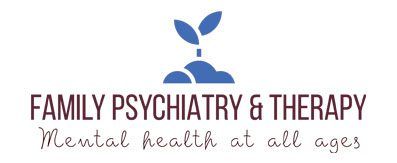Anyone who’s experienced a bout of anxiety knows how crippling it can be. It’s quite common for people to get nervous and experience anxiety in particularly high-stress situations like a big exam at school, a major evaluation at work, or a much-anticipated social event or date. Others suffer from anxiety disorders, where the bouts of anxiety and feeling nervous are recurring and frequent.
Regardless of whether you face anxiety rarely or regularly, there are strategies for you to deploy to combat the nerve-riddled emotions overwhelming you. To help you limit the anxiety you’re facing, we put together a list of 10 strategies we recommend you try out the next time you’re experiencing anxiety.
1. Improve Your Diet
You know that tired cliche that an apple a day would keep the doctors away? Or that chicken noodle soup was a magical, illness-slaying elixir? Of course these adages aren’t supported with medical research, but they do get something right. Your diet has a major impact on your overall wellness. Including your mental health.
While a steady diet of coffee and snickers bars may feel great in the moment, it won’t do much for you over a sustained period of time. If you have a stressful event approaching, or are experiencing anxiety on a daily basis, take inventory of your diet and make some changes. Try cutting out sugars and processed foods as they can increase your feelings of anxiety. Sprinkle in some nutrient-rich foods, especially ones that contain vitamin B and omega-3s. Another reason you might be feeling anxious could be that you’re not getting enough serotonin. Try to mix some foods that possess serotonin into your diet, such as Turkey, cheese, eggs and salmon.
2. Get 8 Hours of Sleep
Sleep deprivation, and oversleeping, have negative effects on both our physical health and our mental health. If you’re prone to experiencing anxiety, failing to the requisite eight hours of sleep at night could compound your symptoms. If you’re anticipating a stressful event or feel the symptoms of anxiety coming on, do your best to get a full night’s sleep to fight off the symptoms.
3. Slow Down
This one is a bit easier said than done, but usually anxiety and stress go hand in hand. If you have a large list of things to get accomplished, take a deep breath and try and size them up one at a time. If you are focused on doing all five at once, the chances you get overwhelmed are much higher. Try making a list and organizing your tasks to ease the stress.
4. Control Your Breathing
A useful tool to prevent panic attack is to slow your breathing to a controlled and steady pace. The speed of your breathing and your heart rate are indicators. Short, shallow breaths signify stress and anxiety in the brain and body. On the flip side, consciously taking controlled and strong breathes send calming signals to your brain, which will help reduce stress and fight off anxiety.
5. Meditation
Most of us are familiar with meditation, but don’t take advantage of the many mental and physical health benefits associated with meditation. Meditation is proven to do wonders for relaxation. And the calming relaxation of meditation leads to less stress, less anxiety and a better overall mood. Find a time in your busy day to spend some time meditating. Many people enjoy meditating first thing in the morning to fire their day up with a relaxed and calm mind.
6. Set Achievable Goals
If the future seems big and scary, try changing the thoughts about what lies ahead. Sometimes the mere act of setting concrete goals can take the edge off anxiety about future unknowns. Take an hour to produce a vision board that creates excitement about projects and possibilities to come. The experience of creating a board of your goals can both be a cathartic experience and an excellent way to individually organize your tasks.
7. Carve Out Some You Time
Though it may seem difficult to carve out some time in your busy schedule, it’s important for you to find some time to relax and do something enjoyable. Whether it’s going to the gym for an hour, playing a round of golf, going on a walk in the park, watching a comedy TV show, reading a book, playing with your pets or any other number of activities, it’s important for you to take a break and spend some time doing something that will help relieve stress and take your mind off of your anxiety.
8. Quiet Time
In today’s always-on, always-connected world, it may be difficult to unplug and experience some silence. Everywhere we go there’s a TV, music, a smartphone or a tablet competing for our attention. If you’re experiencing anxiety, spend 15-30 minutes detached from electronics. Turn off your phone, the TV and close your laptop. Take some time to decompress from technology and enjoy the quiet.
9. Look at and Smell Something Relaxing
Your sense of sight and smell can both induce and reduce anxiety. Think about some things that are calming for you to look at and/or smell, and place them around the area in which you’re experiencing stress. Bring a picture of your pet to the office or find a soothing candle or calming oil to smell at your desk. These relaxing images or smells can help you break through tension and think with some clarity.
10. Exercise
Much in the same way that improving your diet and getting sleep helps reduce anxiety, so too does exercise. Mental and physical healthy correlate to one another much more than many people realize. It’s difficult to get into a regular exercise routine, but once you do it’s much easier to maintain it. It’s recommended that adults exercise at least three times per week for 60 minutes. If possible, find a form of exercise that you enjoy. Whether it’s yoga, dance, playing basketball, running, biking or lifting weights, the more you enjoy the activity, the more likely you are to keep doing it.
Learn More About Anxiety at Family Psychiatry and Therapy
Stress and anxiety can disrupt your daily life and make completing your daily tasks at work and school very difficult. By following the steps we outlined in this post, you’ll have a good chance at reducing the symptoms of anxiety that you’re experiencing. If these steps aren’t providing you with enough relief, or if you would like to speak with a mental health professional about additional treatments for anxiety, contact us today to arrange an appointment.



